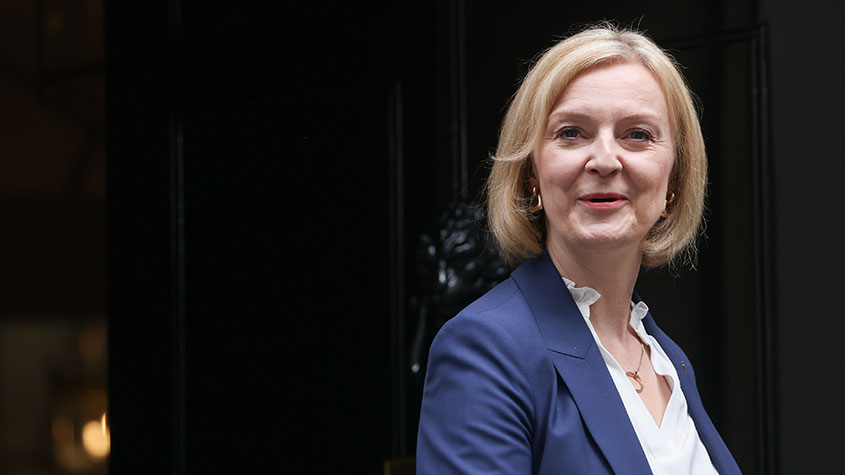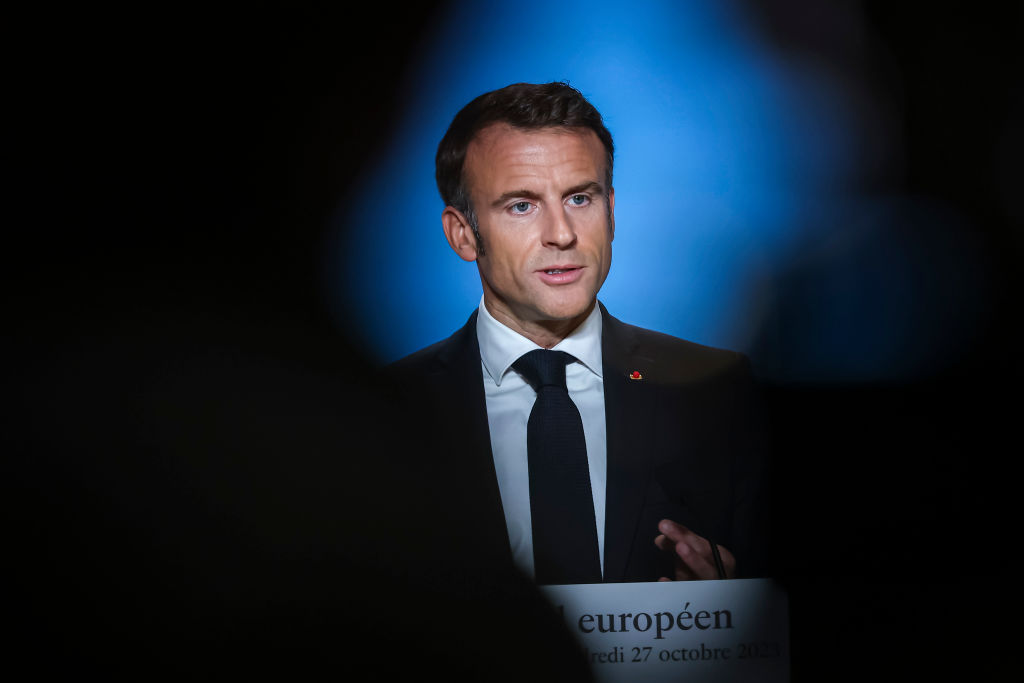A forgotten lesson on the dangers of energy price caps
Liz Truss’s proposed energy price cap is an ambitious gamble. But a similar programme in Spain ended up being a fiasco, say Max King and Tom Murley. Here, they explain why Truss’s plan could be doomed to failure.

Get the latest financial news, insights and expert analysis from our award-winning MoneyWeek team, to help you understand what really matters when it comes to your finances.
You are now subscribed
Your newsletter sign-up was successful
Want to add more newsletters?
“You can’t buck the market”, Mrs Thatcher used to say. But her disciple, Liz Truss, has approved plans to do just that.
Admittedly, popular pressure and the media gave her little choice and the UK is only following most European countries, but hopes that this will end well may prove mistaken.
Tom Murley, a 30 year veteran of the renewable energy sector who founded that arm of Hg Capital and served on the board and investment committee, has profound doubts about the energy price guarantee based on the fiasco of his experience in Spain.
Try 6 free issues of MoneyWeek today
Get unparalleled financial insight, analysis and expert opinion you can profit from.

Sign up to Money Morning
Don't miss the latest investment and personal finances news, market analysis, plus money-saving tips with our free twice-daily newsletter
Don't miss the latest investment and personal finances news, market analysis, plus money-saving tips with our free twice-daily newsletter
“The UK and Western Europe face an energy crisis; not so much of supply but one of price after decades of low costs,” he says. Truss’s £100bn solution, capping energy bills for up to two years, is not the answer. It does not solve the underlying problems of the energy sector – habitual underinvestment in UK energy supply and ever-changing UK energy policy. On top of this, this borrow-today-and-pay-tomorrow scheme has been tried before, and failed.
Spain’s failed energy price cap
In the early 2000s, Spain embarked on an ambitious renewable energy policy when renewable electricity was significantly more expensive than fossil fuels, which is no longer the case. Under that policy, Spain was to pass on the increased cost of renewables to all of its consumers. However, because the pace of renewables expansion was quicker than planned and successive governments were reluctant to pass on rate increases during election cycles, the consumer increases never happened. As a result electricity suppliers collected from customers less than it cost to run the system. This became known as the tariff deficit.
Between 2002 and 2007 the deficit was at manageable levels, so the suppliers agreed to wait for collection out of future price increases. However, as the tariff deficit widened they became nervous, so the Spanish government issued bonds backed by the future credit of the electricity system and a promise of tariff increases, with the proceeds paid to suppliers.
From 2008-2013, however, the tariff deficit exploded, reaching €30bn. The 2008 financial crisis and Spain’s deteriorating credit position (necessitating a bailout from the European Central Bank) made the issuance of more bonds impossible and tariff increases remained politically unpalatable. As the tariff deficit grew, the rating agencies began to question if the suppliers would ever be paid, and threatened a downgrade to junk bond status.
Not wanting to pass the cost on to voters, Spain opted to retroactively slash the rates paid to renewable energy providers by 30%-100%, effectively impairing over €100bn of equity invested in Spanish renewables based on Spain’s long-term promises. This cut the deficit and amounts due were paid, stabilising the system’s finances. The simple lesson from Spain is that systems which charge consumers well below the full cost of energy for an extended period (the Spanish tariff deficit was 3% of Spanish GDP) are not sustainable and doomed to failure. If the UK spends £100bn-£150bn on such a programme, it would amount to 3.1%-4.7% of 2021 GDP.
Truss’s plan contains too many unknowns
The UK is proposing to borrow the cost of the scheme, but is this the best or the fairest way to spend such a huge amount of money? Will the scale of it push up the cost of borrowing not just for the government but for the whole economy? How will it make the economy more efficient or productive?
As Murley says, “there is much about the current energy crisis that we do not know. How long will it last? When will new or resumed supply of gas come onstream and alleviate the price increases? Truss’s solution could end up looking like Spain – an already large problem that mushrooms into an economic disaster, resulting in a massive price hike after two years.”
The government does promise to allow UK gas production to be stepped up, to remove the blocks on fracking and to encourage new energy infrastructure, including nuclear, renewables and grid connections but planning and environmental objections could slow this down. It has ruled out a windfall tax on the sector (for now?), preferring to switch the generators now earning enormous profits onto lower priced, longer term contracts.
Reforming the electricity market is highly desirable and, it seems, universally accepted by the generators. But it will be complex and take time. With the massive profits that are currently being earned, the generators have an incentive to spin out the process.
There are some saving graces to the government’s proposal. The price cap of £2,500 should be high enough to encourage increased output and discourage consumption. Reducing the inflation peak by 5% will save on the cost of indexing inflation-linked bonds (though not in real terms) and may help reverse the upward spiral of inflation.
The best hope for the government is that energy prices fall quickly enough to make the price cap redundant long before the two years are up. The cost would therefore be far below that budgeted for. Their worst fear is that prices stay high, market reform takes too long to implement and the scheme becomes unaffordable. If so, windfall taxes will be back on the agenda.
Get the latest financial news, insights and expert analysis from our award-winning MoneyWeek team, to help you understand what really matters when it comes to your finances.

Max has an Economics degree from the University of Cambridge and is a chartered accountant. He worked at Investec Asset Management for 12 years, managing multi-asset funds investing in internally and externally managed funds, including investment trusts. This included a fund of investment trusts which grew to £120m+. Max has managed ten investment trusts (winning many awards) and sat on the boards of three trusts – two directorships are still active.
After 39 years in financial services, including 30 as a professional fund manager, Max took semi-retirement in 2017. Max has been a MoneyWeek columnist since 2016 writing about investment funds and more generally on markets online, plus occasional opinion pieces. He also writes for the Investment Trust Handbook each year and has contributed to The Daily Telegraph and other publications. See here for details of current investments held by Max.
-
 Student loans debate: should you fund your child through university?
Student loans debate: should you fund your child through university?Graduates are complaining about their levels of student debt so should wealthy parents be helping them avoid student loans?
-
 Review: Pierre & Vacances – affordable luxury in iconic Flaine
Review: Pierre & Vacances – affordable luxury in iconic FlaineSnow-sure and steeped in rich architectural heritage, Flaine is a unique ski resort which offers something for all of the family.
-
 No peace dividend in Trump's Ukraine plan
No peace dividend in Trump's Ukraine planOpinion An end to fighting in Ukraine will hurt defence shares in the short term, but the boom is likely to continue given US isolationism, says Matthew Lynn
-
 How have central banks evolved in the last century – and are they still fit for purpose?
How have central banks evolved in the last century – and are they still fit for purpose?The rise to power and dominance of the central banks has been a key theme in MoneyWeek in its 25 years. Has their rule been benign?
-
 Europe’s new single stock market is no panacea
Europe’s new single stock market is no panaceaOpinion It is hard to see how a single European stock exchange will fix anything. Friedrich Merz is trying his hand at a failed strategy, says Matthew Lynn
-
 Do we need central banks, or is it time to privatise money?
Do we need central banks, or is it time to privatise money?Analysis Free banking is one alternative to central banks, but would switching to a radical new system be worth the risk?
-
 The French economy's Macron bubble is bursting
The French economy's Macron bubble is burstingCheap debt and a luxury boom have flattered the French economy. That streak of luck is running out.
-
 The Bank of England can’t afford to hike interest rates again
The Bank of England can’t afford to hike interest rates againWith inflation falling, the cost of borrowing rising and the economy heading into an election year, the Bank of England can’t afford to increase interest rates again.
-
 UK wages grow at a record pace
UK wages grow at a record paceThe latest UK wages data will add pressure on the BoE to push interest rates even higher.
-
 Trapped in a time of zombie government
Trapped in a time of zombie governmentIt’s not just companies that are eking out an existence, says Max King. The state is in the twilight zone too.
